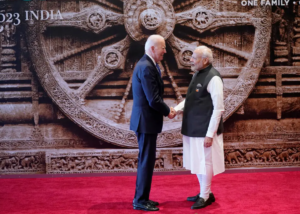A Controversial Decision Shakes the Intelligence Community
In a move that has sent shockwaves through the intelligence community, Director of National Intelligence Tulsi Gabbard revoked the security clearances of 37 individuals, including top CIA aides, without prior consultation with the White House. This unprecedented action has raised questions about the politicization of intelligence agencies and the balance of power within the Trump administration.
The Unilateral Revocation: A Breach of Protocol?
On August 19, 2025, Tulsi Gabbard announced the revocation of security clearances for 37 individuals, citing their betrayal of constitutional duties. The list included current and former intelligence officials, some of whom had been involved in assessments of Russian interference in the 2016 election. The decision was made public via social media, bypassing traditional channels and sparking immediate backlash from President Trump’s aides.
Critics argue that the lack of prior consultation with the White House and the manner in which the decision was announced breached established protocols. Some also expressed concern that the list included at least one undercover officer, potentially raising legal and ethical issues. Despite the controversy, a senior intelligence official affirmed that President Trump approved the removals, framing them as part of a broader effort to hold accountable those allegedly misusing intelligence access.
Political Motivations: Targeting Dissenters?
The timing and scope of the security clearance revocations have led to speculation about their political motivations. Many of the individuals affected had been involved in investigations related to Russian interference in the 2016 election or had supported President Trump’s impeachment. Some observers view the revocations as a targeted effort to remove dissenters and consolidate power within the intelligence community.
Joel Willett, a former CIA officer whose clearance was revoked, announced his candidacy for the U.S. Senate seat in Kentucky, challenging the notion that the revocations were politically motivated. He criticized the Trump administration for politicizing government institutions and accused it of retaliating against dissenters. Willett’s campaign emphasizes combating economic inequality and addressing the fentanyl crisis, issues he believes are being overlooked in the current political climate.
White House Response: Defending Gabbard’s Actions
Despite the controversy, the White House has defended Tulsi Gabbard’s actions, stating that she was executing the administration’s objectives to hold individuals accountable for alleged misuse of intelligence. A spokesperson emphasized that Gabbard acted under President Trump’s directive and that the decision was in line with the administration’s broader goals. However, the lack of prior consultation with the White House has raised questions about the coordination and communication within the administration.
The incident has also highlighted ongoing tensions between Gabbard and the CIA. Her previous disagreements with the agency, particularly over Iran’s nuclear capabilities and a video warning of nuclear war, have contributed to divides within the administration. Despite these tensions, Gabbard remains a key figure in the intelligence community, with her actions continuing to shape the discourse on intelligence reform and accountability.
Implications for Intelligence Oversight
The revocation of security clearances has sparked a broader debate about the oversight and accountability of intelligence agencies. Critics argue that such unilateral actions undermine the principles of transparency and checks and balances that are essential to a functioning democracy. They warn that politicizing intelligence agencies can erode public trust and compromise national security.
Supporters of Gabbard’s actions contend that the intelligence community needs to be held accountable for its actions and that the revocations were necessary to ensure the integrity of intelligence operations. They argue that individuals who misuse their positions for political purposes should face consequences, regardless of their status or affiliations.
Conclusion: A Defining Moment for the Trump Administration
Tulsi Gabbard’s decision to revoke the security clearances of 37 individuals has become a defining moment for the Trump administration. The controversy surrounding the move underscores the challenges of balancing national security concerns with the principles of transparency and accountability. As the debate continues, the incident serves as a reminder of the complexities involved in overseeing intelligence agencies and the importance of maintaining public trust in governmental institutions.
For continuous updates on this developing story, subscribe to trusted news sites like USnewsSphere.com.
[USnewsSphere.com / yn]





